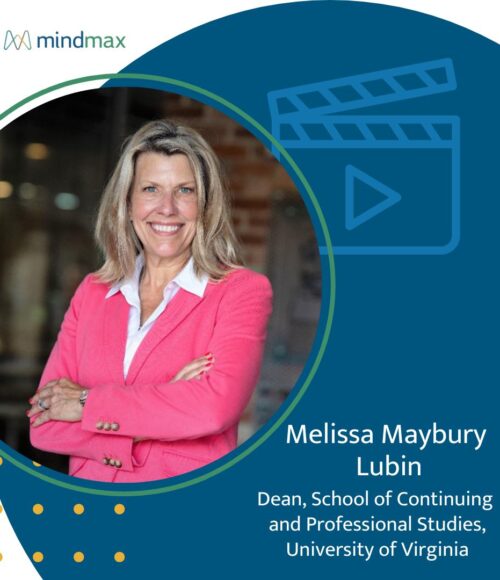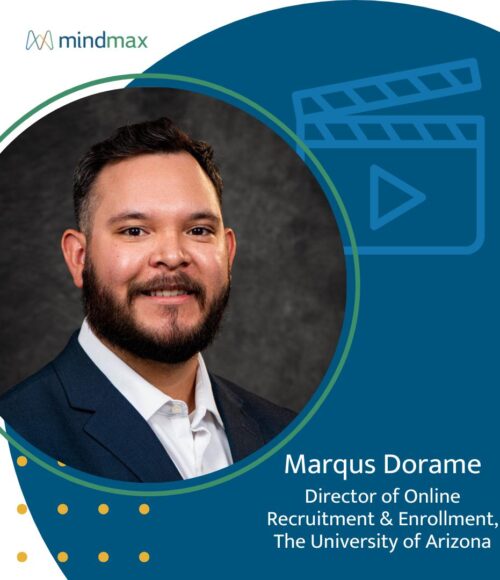The Transformative Power of Compassionate Reenrollment in Higher Education

The Transformative Power of Compassionate Reenrollment in Higher Education
Education is one of the most transformative experiences in a person’s life. And yet, due to circumstances largely beyond their control, many people who enroll in college don’t have the opportunity to complete their degree.
In my experience engaging with students who have stopped out or dropped out of college, I’ve found that almost every single one of them feels a great deal of guilt and shame associated with not achieving their goal. It’s heartbreaking to see, and in my opinion, schools have an incredible opportunity to re-engage these students and make a meaningful difference in their lives.
I recently hosted over a dozen higher education leaders from across the country to discuss the topic of compassionate reenrollment, led by J. Kim McNutt and Lynda Swanson Wilson of the College of Extended & International Education at California State University, Dominguez Hills (CSUDH). Throughout the conversation, a few significant benefits of reenrollment strategies emerged, building the case that compassionate reenrollment is a win for both students and schools.
Why Compassionate Reenrollment Is a Worthwhile Endeavor
Here are three reasons to invest in compassionate reenrollment initiatives:
1. It’s the right thing to do
Students stop out or drop out of college for various reasons. However, one study by the University Professional and Continuing Education Association (UPCEA) and StraighterLine revealed that 42% of respondents stopped out for financial reasons, and 32% cited family or personal commitments.
The same study found that these students are “disproportionately women, low income, and working students.” They are already at a disadvantage, and they are in need of a lifeline to ensure they have equitable access to an education.
Compassionate reenrollment is, first and foremost, an ethical imperative. It’s a commitment from higher education institutes to meet students where they are and assure them that it’s not a shame that they stopped out or dropped out. Sometimes, life gets in the way—and everyone deserves a second chance at having a safe space to learn and build lifelong skills.
2. It’s easier to reengage a student than to attract a new one
Compassionate reenrollment isn’t only an ethical issue. It also makes good economic sense.
With college enrollments steadily declining across the country, many institutions are bracing for the long-term impact. While schools must think creatively about how to engage new students and grow enrollments, there’s another market they shouldn’t ignore: stopout and dropout students.
From a marketing perspective, it costs less to reengage a student than to attract a new one. Higher education marketing and enrollment teams have already worked to nurture them through the enrollment funnel the first time around. They know their demographics and their preferences because the relationship has been established. In many cases, stopout and dropout students are hot leads waiting for an opportunity to reenroll.
3. It lays the foundation for a lifelong engagement
The traditional higher education pathway was relatively linear for many decades: attend K-12 school, go to college, graduate, work a 40-year career, and retire. Today, however, many adults choose to continue their education throughout their lives.
Schools that invest in compassionate reenrollment initiatives help students become successful members of the workforce. And they earn students’ loyalty for years to come, staying top of mind for them as a place where they can pursue a master’s degree, upskill with a certificate program, or obtain other credentials later in their careers.
When I think about compassionate reenrollment, this quote always comes to mind: “People don’t remember what you say; they remember how you made them feel.” Compassionate reenrollment is an incredible opportunity for colleges to make people feel excited about the school that gave them a second chance.
More on Compassionate Reenrollment
In my next post, I’ll provide a closer look at how CSUDH harnessed the transformative power of compassionate reenrollment in partnership with MindMax. Stay tuned by subscribing to our blog at the bottom of this page.
I also invite you to join Kim, Lynda, and me for an upcoming webinar on the topic of compassionate reenrollment on Wednesday, September 14th, at 2 p.m. EST. Register today—even if you can’t attend live, we’ll be sending out slides and the recording after the webinar to all registrants.

Related Ideas
Melissa Maybury Lubin Wants Higher Ed to Be Affordable, Accessible, and Achievable

Marqus Dorame Advocates for Student-First Recruitment
